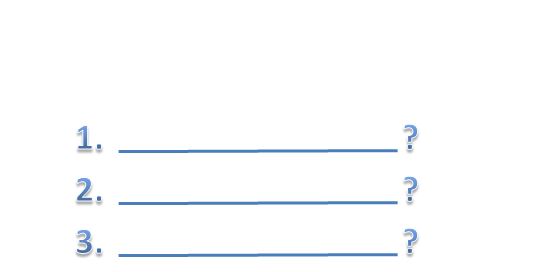The difference between successful people and those who are not is often as simple as asking yourself these three questions: what can I do, what can I learn, who can help me?
Smart leaders and managers are no exception. They know there is nothing wrong with needing help. In fact, they have figured out how to get the help they need for success. I wrote about this in my last post. Unfortunately, some people believe that having a coach is an admission of inadequacy. This misperception is unfortunate for two reasons:
- Being true to oneself is a key aspect to humility, openness and transparency—traits that leadership experts describe as essential to effective management. Employees trust leaders who are humble, transparent, willing to learn and ask for help. They distrust leaders who pridefully separate themselves from their need for help, and need from their people.
- The thrust of executive coaching is not to expose grievous shortcomings in the leader. Effective coaching is designed to build upon the skills a leader already has, and to maximize their potential. Certainly, this involves addressing a blind spot or areas that need improving, but the emphasis is to get even better at leading.
Coaches inject perspectives and pose questions to help a leader gain clarity in what their people need and how best to provide it. This strengthens an organization, often with subtle adjustments. Leaders are not torn down by their coaches, rather, they are built up—similar to how a good athletic coach guides an athlete to be the best they can be.
Some leaders reject vulnerability in the presence of an executive coach as seeming weak or unknowledgeable. The misperception is that the leader is inferior to the coach and must bear their soul to them, forcing the leader to deal with insecurities, weaknesses or failures. But good coaches do not beat-up, dress-down or coerce the people they work with. They build a confidential, non-judgmental, action-oriented, goal-focused relationship to promote the leader’s success and fulfillment.
The Most Powerful Leadership
The best leaders have learned that while hard skills—such as decision-making, analysis, delegating and control—are certainly part of effective management, the most powerful leadership tools are softer skills: transparency, humility, empathy, honesty and personal engagement. Leaders unfamiliar with soft skills may feel vulnerable with an executive coach who emphasizes these as part of the coaching process. Great leaders grasp these opportunities to learn and grow their skills in order to become even better at leading.
What do you think? What are your answers to the three greatest questions successful people ask? What is your experience with coaching? I’d love to hear from you. You can call me at 561-582-6060, let’s talk. And as always, I can be reached here, or on LinkedIn.

Did You Enjoy This Article?
Join thousands of other smart business owners like yourself & get our Proffittable Times newsletter.
It's filled with actionable content you can apply immediately.
Sign up now to get started!
– Coach Nancy










